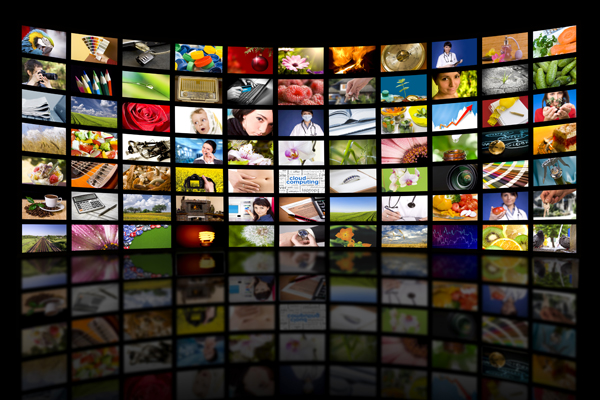3Qs: What are you watching? #Now

Television is in the midst of a major transformation. Long gone is appointment viewing, when fans of the small screen would put their lives on pause in order to watch their favorite programs in pre-scheduled time slots. Today, viewers have complete control over when—and where—they watch their favorite shows. It is that autonomy that allows audiences to binge watch popular programs such as Game of Thrones, House of Cards, and Breaking Bad through on-demand streaming media services like Netflix. Here, Bill Lancaster, a lecturer in the Department of Communication Studies with more than 20 years of experience as a news and entertainment television producer, explains the efficacy of television’s makeover and the habits of ardent viewers whose eyes are seemingly stuck to the screen.
Many actors known for their silver screen prowess have recently made the move to television shows, such as Kevin Spacey in Netflix’s “House of Cards,” Woody Harrelson and Matthew McConaughey in HBO’s “True Detective,” and Halle Berry in the upcoming CBS show “Extant.” What is the catalyst for this migration and what does it say about the state of television today?
What we are seeing is the reverse of what we are familiar with, which is actors jumping from television to movies. This is happening because there are hundreds of channels and countless shows, and in order for networks to get their products seen they have to engage in this forgotten notion called quality. TV executives realize they can’t continue producing mindless sitcoms. They’re producing compelling programming that is attracting top-level film actors. There is a truism in the American entertainment industry that content is king—and that is what we are witnessing.
Another draw for actors is that television allows them to fully develop characters over the course of many seasons, even years. It’s sometimes a different experience for actors than creating a character for a 90-minute movie.
Does it hurt a show like “House of Cards” or “Orange is the New Black” that there is not a day-after conversation and weekly buildup between episodes like there is for network shows?
The Monday morning chat around the water cooler isn’t happening because no one is watching shows at the same time. But what is happening, thanks to social media, is people are tweeting about a show while they are watching. In many cases actors are tweeting back. This is an enormous shared social experience. In fact, according to a report released by the Pew Charitable Trust, more than 60 percent of television viewers watch shows with a digital device in hand. TV watching is no longer a passive experience and the network executives are high-fiving. They have quite brilliantly turned viewers into marketers.
Is Netflix’s method of releasing entire seasons of a show all at once sustainable?
Binge watching is really in now. It’s a social phenomenon that has become really competitive too. I’ve heard relatives and friends boasting to each other about how many hours of a show they’ve recently watched in one sitting. They brag about it like they’ve done something athletic.
Binge viewing also informs the actual writing and creation of the shows, which are being produced with more complicated plots, more nuanced characters, and more of a long form sensibility. You might say the move is analogous to creating novels over short stories.





